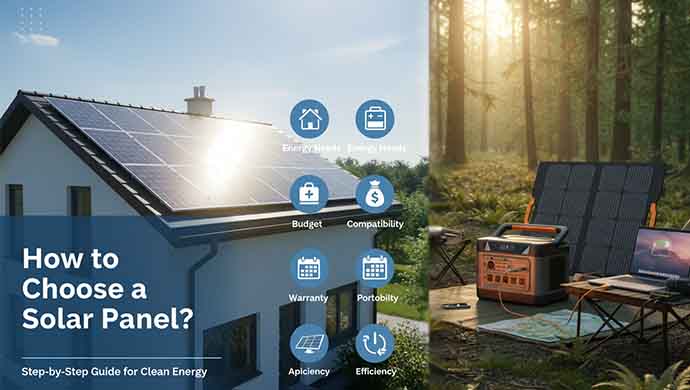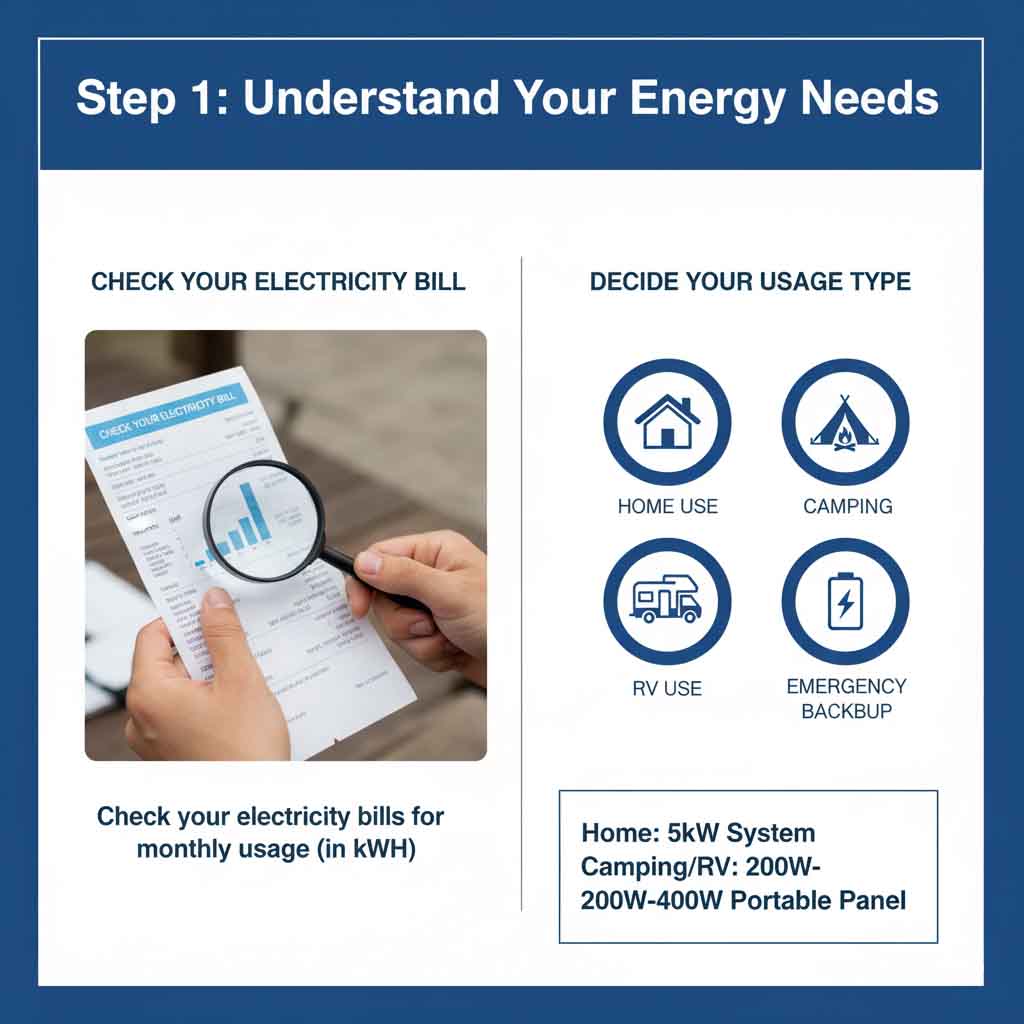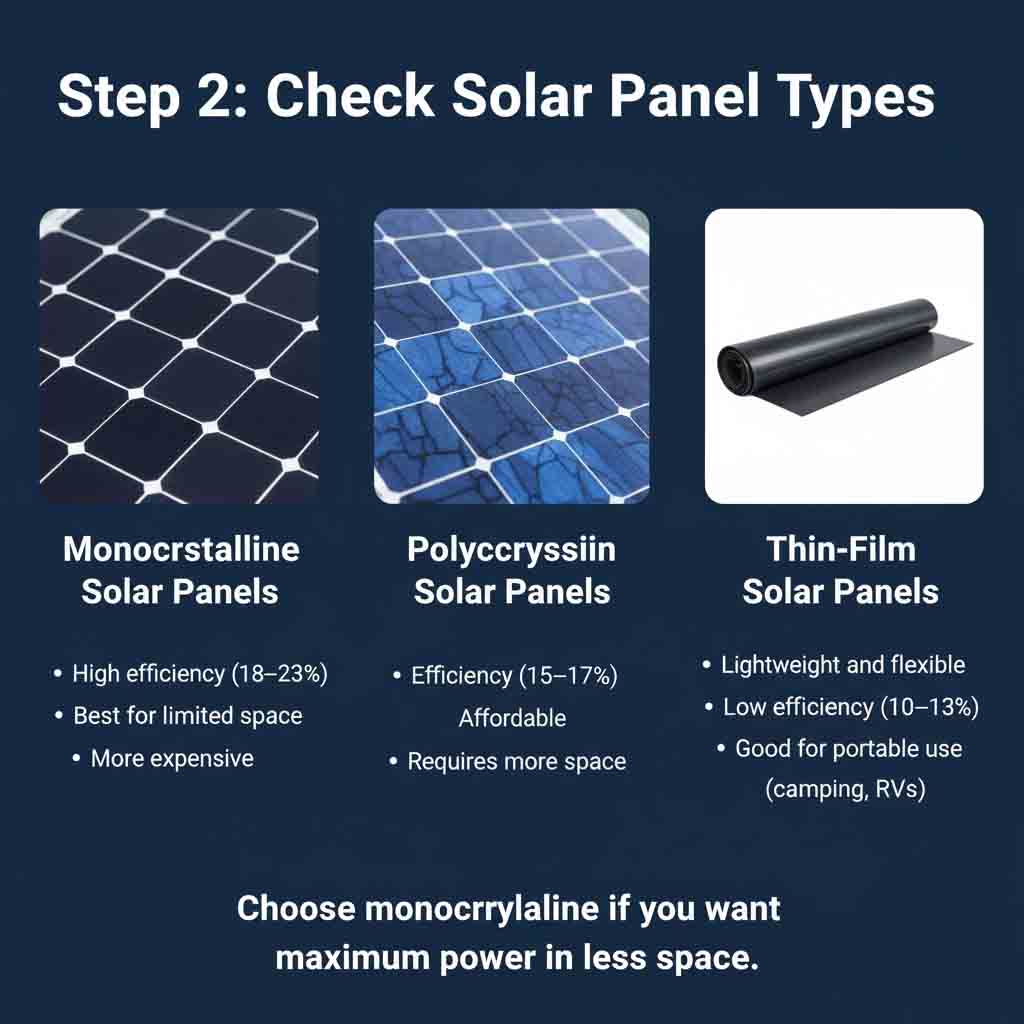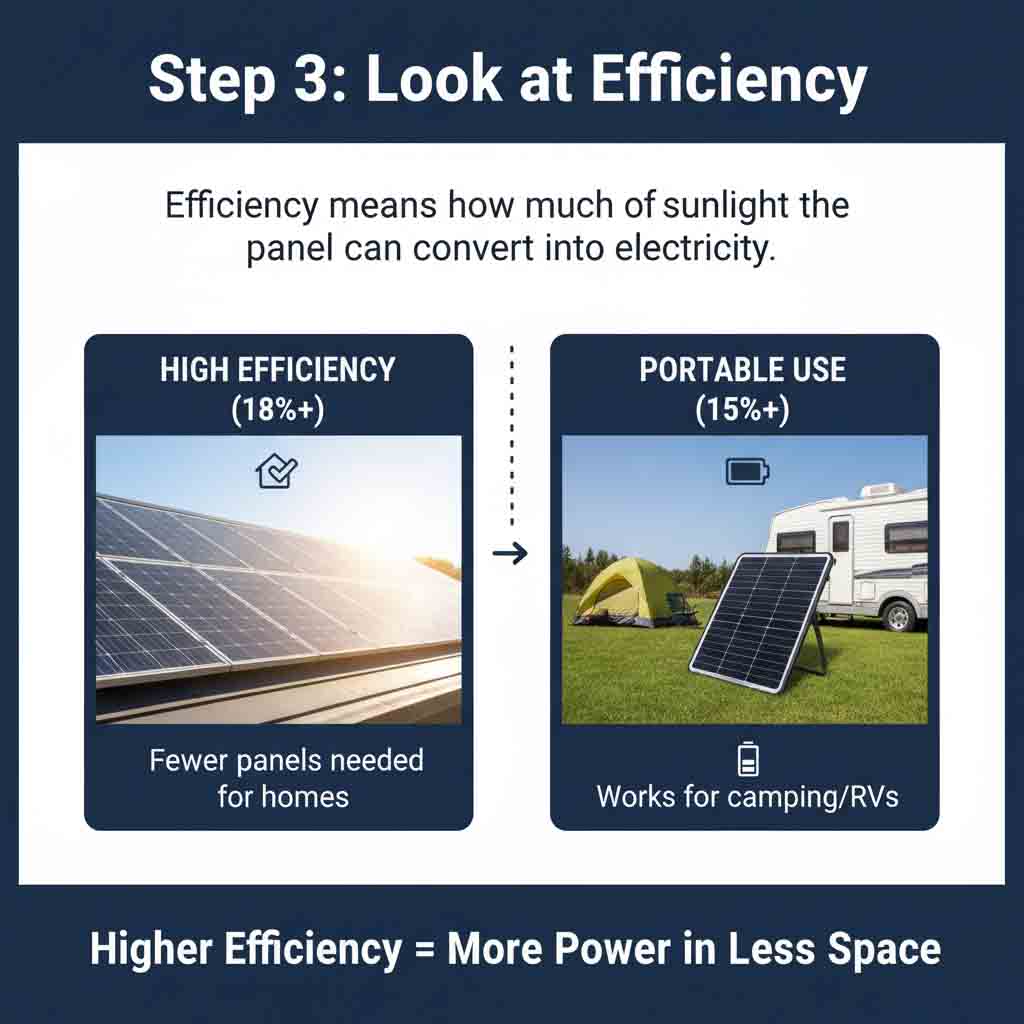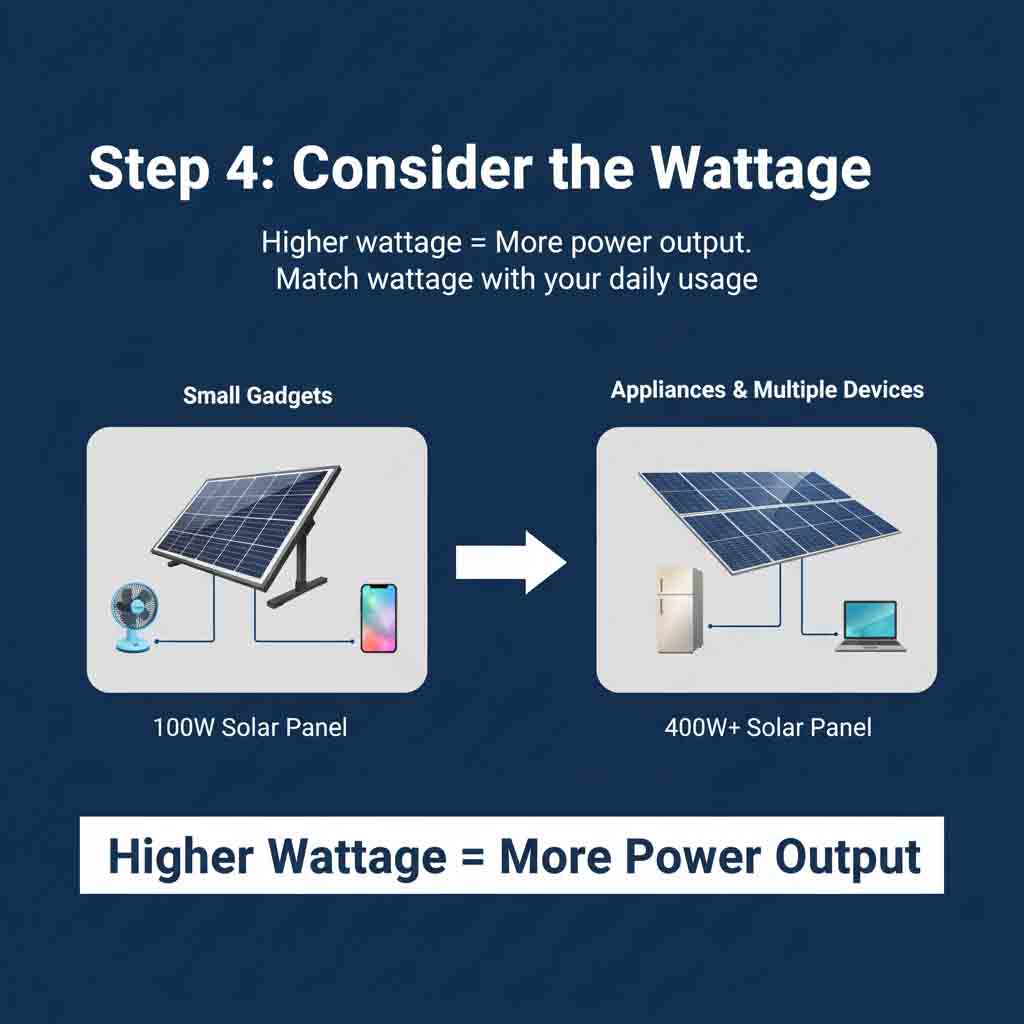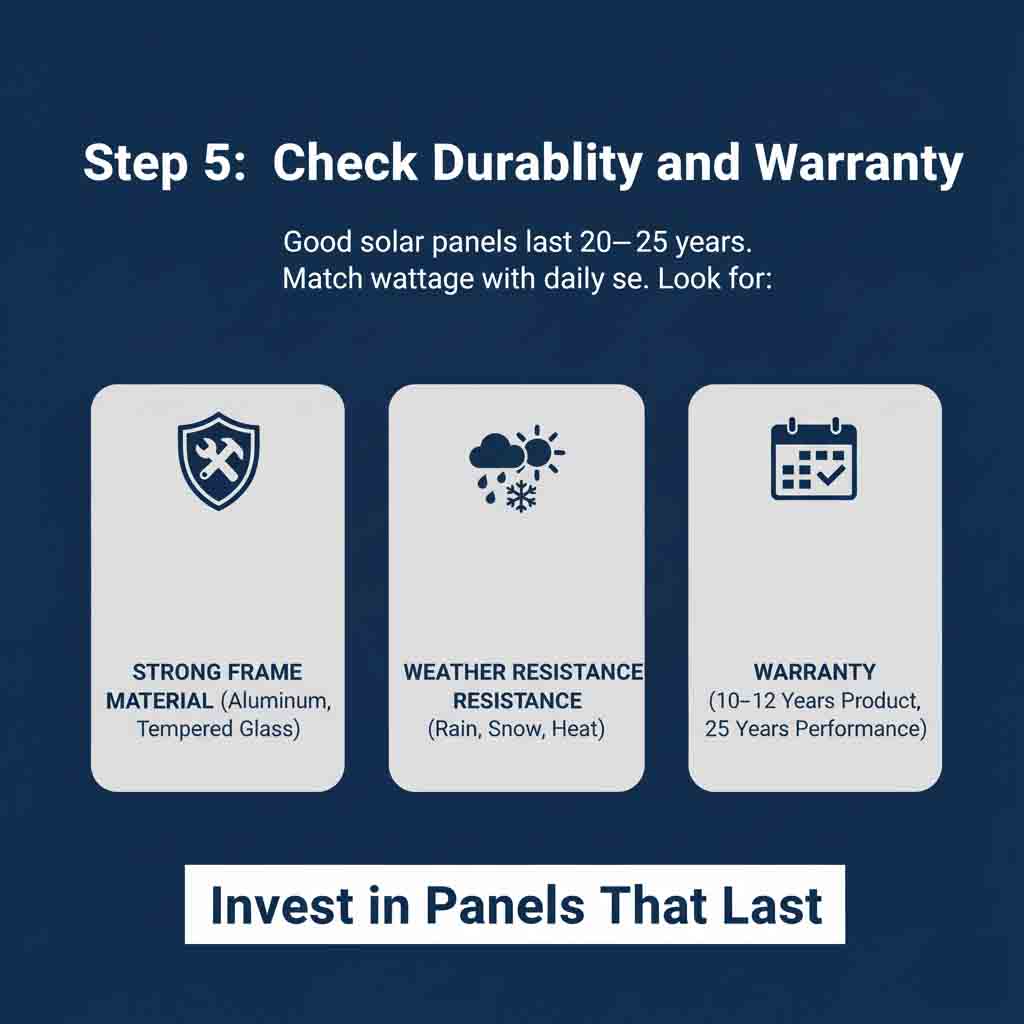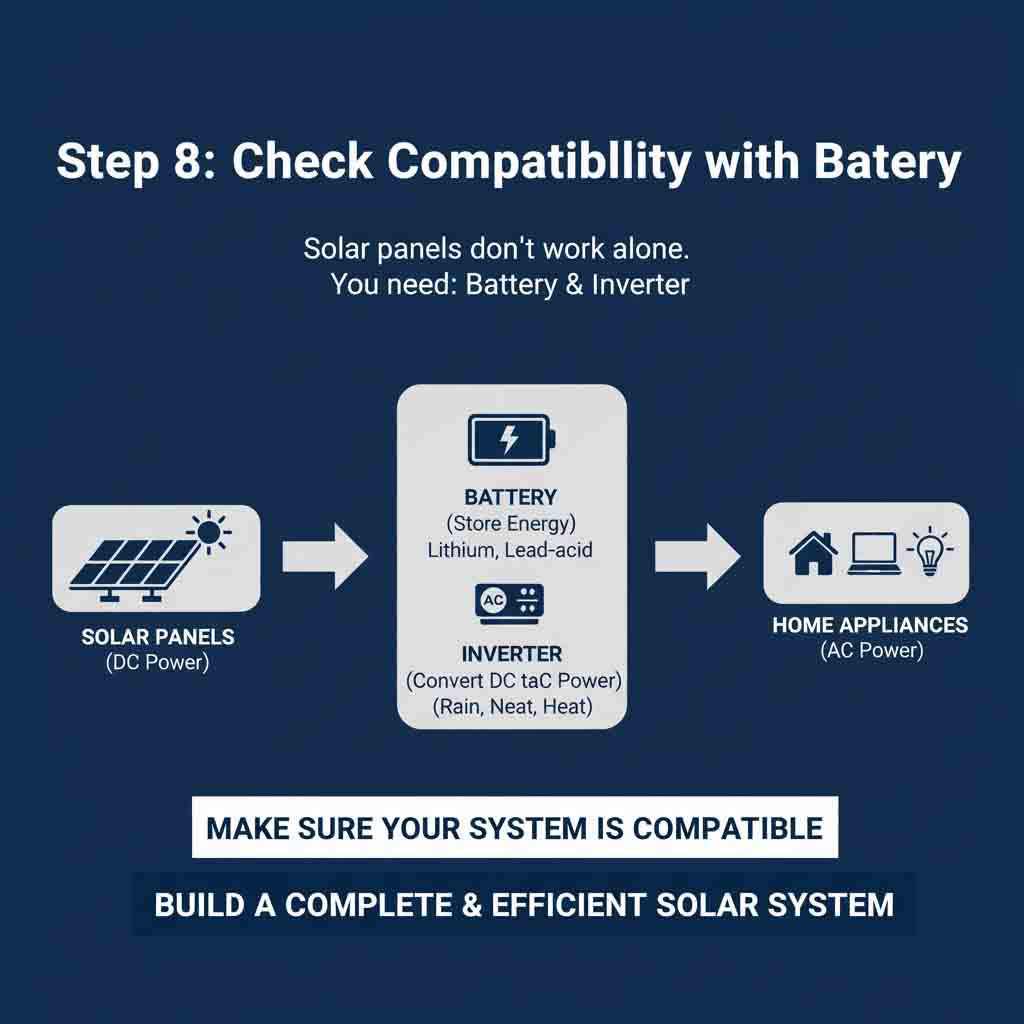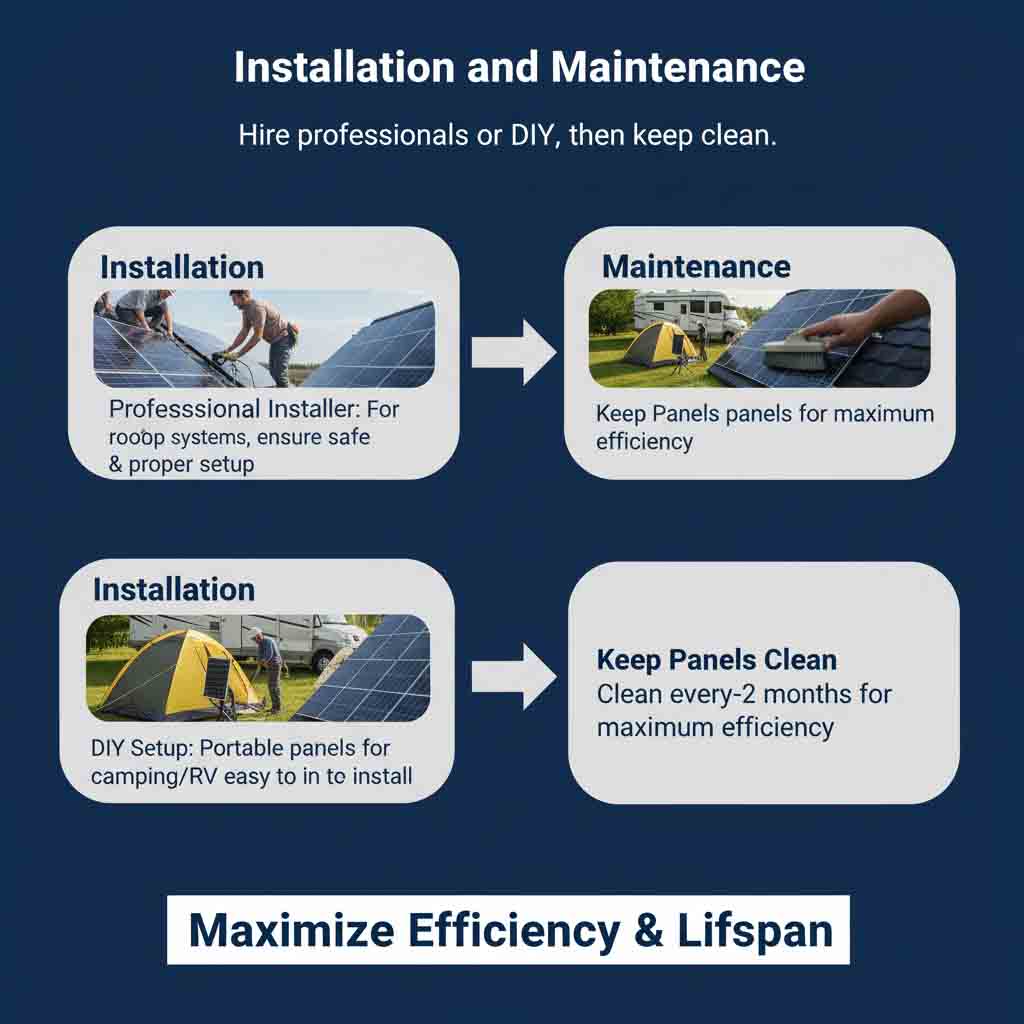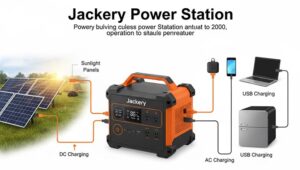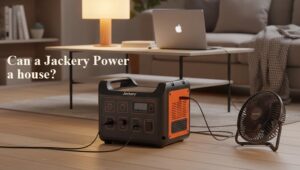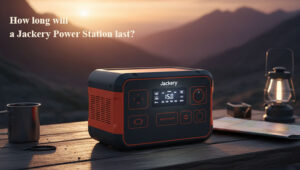Solar panels are one of the best investments for clean energy. It’s cost savings and long-term sustainability. But with so many options on the market, you might wonder: How do I choose the right solar panel? Don’t worry—this guide will walk you through everything step by step. Read from start to end.
Step 1: Understand your energy needs
Before buying a solar panel, you must know how much energy you consume daily.
- Check your electricity bills for monthly usage (in kWh).
- Decide whether you need panels for home use, camping, RV, or emergency backup.
Let’s take an example: A small family home may need a 5kW system, while camping setups can work with a 200W–400W portable panel.
Step 2: Check solar panel types
There are mainly three types of solar panels:
- Monocrystalline Solar Panels
- High efficiency (18–23%)
- Best for limited space
- More expensive
- High efficiency (18–23%)
- Polycrystalline Solar Panels
- Efficiency (15–17%)
- Affordable
- Requires more space
- Efficiency (15–17%)
- Thin-Film Solar Panels
- Lightweight and flexible
- Low efficiency (10–13%)
- Good for portable use (camping, RVs)
- Lightweight and flexible
Choose monocrystalline if you want maximum power in less space.
Step 3: Look at efficiency
Efficiency means how much sunlight the panel can convert into electricity.
- The higher the efficiency, the lower the number of panels you will have.
- For home use, choose panels with 18% or more efficiency.
- For portable panels, even 15% efficiency can work.
Step 4: Consider the wattage
Solar panels come in different watt capacities (50W, 100W, 200W, 400W, etc.).
- Higher wattage = More power output.
- Match wattage with your daily usage.
Example: A 100W solar panel can power small gadgets, while a 400W+ panel can support fridges or multiple devices.
Step 5: Check durability and Warranty
Good solar panels last 20–25 years. Look for:
- Strong frame material (aluminum, tempered glass)
- Weather resistance (rain, snow, heat)
Warranty (at least 10–12 years product warranty and 25 years performance warranty).
Step 6: Portability vs. Fixed Panels
- Portable panels: Best for camping, road trips, and emergency use.
- Fixed rooftop panels: Best for homes and businesses.
Decide based on whether you want a long-term home solution or on-the-go solar power.
Step 7: Budget and Price
Solar panels come in a wide price range.
- Small portable panels: $100–$400
- Home solar systems: $5,000–$20,000+ (with installation)
Always compare price per watt ($/W) to know if you’re getting value for money.
Step 8: Check compatibility with battery and inverter.
Solar panels don’t work alone. You need:
- Battery (to store energy)
- Inverter (to convert DC to AC power)
Make sure your solar panel is compatible with your battery type (Lithium, Lead-acid, etc.).
Step 9: Brand and Certifications
Always buy from trusted brands with certifications like:
- UL (safety standard)
- IEC (international standard)
- Energy Star (efficiency guarantee)
Popular brands: Jackery, EcoFlow, Bluetti, Renogy, OUPES.
Installation and Maintenance
- Hire a professional installer for rooftop systems.
- For portable panels, setup is usually DIY.
Clean panels every 2–3 months to maintain efficiency.
Final Thoughts
Choosing the right solar panel depends on your energy needs, budget, and usage style.
- For homes → go with high-efficiency monocrystalline panels.
- For camping/RV → choose lightweight portable panels.
If you follow this step-by-step guide, you’ll be able to pick the best solar panel that gives you maximum value and long-term savings.
Frequently Asked Questions (FAQs)
Q1: How many solar panels do I need for my home?
A: It depends on your daily energy consumption, panel wattage, and peak sun hours. Use a simple calculation:Number of panels=Daily energy (Wh)Panel Watt × Peak Sun Hours\text{Number of panels} = \frac{\text{Daily energy (Wh)}}{\text{Panel Watt × Peak Sun Hours}}Number of panels=Panel Watt × Peak Sun HoursDaily energy (Wh)
Q2: Which type of solar panel is best for limited roof space?
A: Monocrystalline panels—they are more efficient and generate more power per square meter.Q3: Can solar panels work on cloudy or rainy days?
A: Yes, panels still produce electricity under diffuse sunlight, but output will be lower. Always size your system with some margin for cloudy days.Q4: How long do solar panels last?
A: Most high-quality solar panels have a 25-year performance warranty, but they can continue generating power beyond that with slightly reduced efficiency.Q5: Do I need batteries with solar panels?
A: Batteries are optional. For grid-tied systems, you may not need a battery. For off-grid setups or backup, batteries are essential to store energy.

